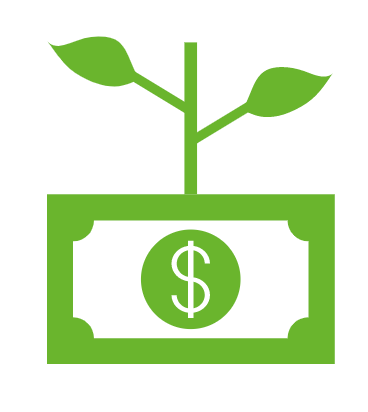The primary reason why I invest is to achieve a return on my assets which is higher than the returns on cash.
Secondary and ancillary reasons are:
I want to maintain or increase the purchasing power of my assets - staying ahead of inflation
I am passionate about financial investing and enjoy the investment process
The assumption here is that I am getting compensated for taking on different types of risks, primarily loss of capital (entire or partial), liquidity, and mark-to-market.
There are many different things that we can invest in, such as:
Individual Public Equities
Corporate Bonds
Government Debt
Mutual Funds
Exchange Trade funds/Index Funds
Hedge Funds
Real Estate
Private Equity Funds
Gold
Bitcoin
My personal preference is to invest in individual Public Equities, but I am not averse to invest in other asset classes as well, as long as I can understand the risk/reward profile well. I have personally invested in individual Public Equities, Corporate Bonds, Mutual Funds, Exchange Traded Funds, and have also advised my clients on most of the above different investment vehicles.
What do you get as an equity holder?
You have claims to the residual cash flows generated by a Company, after the debt holders (interest and debt principal payments) and governments (taxes) have taken their claims.
The value of the equity in a Company is the present value of the expected cash flows to the equity holders into perpetuity. Therefore two variables are important here - the stream of future cash flows and the rate at which you discount the cash flows.
The overall return to a shareholder will depend largely on the growth of the value of the equity, coupled with the capital returns to the shareholders through dividends and share buybacks. Capital returns make up a good portion of the overall return enjoyed by shareholders, but is usually glossed over by investors.
Risk/Reward of equity holders
As equity holders:
You are lower in the capital structure as compared to a debt holder (in the event of a liquidation, you will only get back money after the rest of the stakeholders get back their money)
The residual cash flows to equity holders are also more uncertain and volatile as compared to debt holders, who have a fixed interest/coupon and principal payment schedule
Furthermore, there is also a higher mark-to-market risk for equity holders as their market prices have been more volatile historically
Therefore, the expected return of an equity holder is typically higher than the expected return of a debt holder to compensate for the additional risks.
In general, you should not invest in Equities if:
You might need the cash in the short term
Your investment horizon is less than 3-5 years
You are unable to stomach the market price volatility of equities. This is a very important point. During bull markets, every investor claims they can withstand a 50% drawdown in the market value of their portfolio. However, I often find that clients will inevitably panic when there is a significant market drawdown, and sell their assets into weakness (the worst time), and fail to buy again when the market bounces back
What am I invested in now?
My current portfolio is predominantly in public equities, with a minor position in an Additional Tier-1 Bank Debt and also a small amount of Cash
I bucket my public equities into three main categories - Secular Growth, Stable Income, and Special situations. These are loosely defined with no predetermined percentages, and I use these buckets to help in my thinking and portfolio construction. I believe the buckets’ Secular Growth and Stable Income are self-explanatory. Special Situations is a much broader category; the bulk of it currently is in Asian Family-owned Conglomerates. This category also includes event-driven situations such as spin-offs, M&A, tracking stocks etc..
My next post will be an analysis on a stock that I am currently doing work on. I will likely split it into two or three parts. Speak to you soon.


